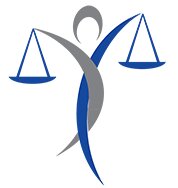Best Work Injury Lawyers in Trinidad and Tobago
Share your needs with us, get contacted by law firms.
Free. Takes 2 min.
Or refine your search by selecting a city:
List of the best lawyers in Trinidad and Tobago
About Work Injury Law in Trinidad and Tobago
Work injury law in Trinidad and Tobago is designed to protect employees who suffer injuries while performing their job duties. The legal landscape in this area focuses on ensuring fair compensation for injured workers and promoting safe working environments across various industries. This includes coverage under the Occupational Safety and Health Act (OSHA) and provisions under the Workmen's Compensation Act. The law mandates employers to provide a safe workplace and proper training, and it enables employees to claim compensation for injuries sustained due to workplace accidents or negligence.
Why You May Need a Lawyer
While navigating the aftermath of a workplace injury, individuals may encounter complex legal and administrative challenges. Hiring a lawyer can help in several ways:
- Understanding the full scope of your entitlements under local laws.
- Negotiating fair settlements with insurance companies or employers.
- Representing your case in court if an amicable settlement cannot be reached.
- Ensuring all paperwork and legal documentation are filed correctly to avoid unnecessary delays.
- Providing legal expertise if the employer disputes the claim or if there are allegations of contributory negligence.
Local Laws Overview
The key legislation governing work injuries in Trinidad and Tobago includes:
- Occupational Safety and Health Act (OSHA): This act requires employers to maintain a safe work environment and enforces measures to prevent workplace accidents and illnesses.
- Workmen's Compensation Act: This provides a framework for compensating employees who are injured on the job. It outlines the type of benefits available, including medical expenses and lost wages.
- Employee-Employer Relationship: Employees must report work-related injuries promptly, and employers must provide information on workers' rights and compensation claims processes.
Frequently Asked Questions
What should I do immediately after a work injury?
Report the injury to your employer as soon as possible and seek medical attention. Ensure all details of the incident are documented.
What types of injuries are covered under work injury law?
Injuries that occur as a result of work-related activities, including physical injuries, occupational illnesses, and aggravations of pre-existing conditions, are typically covered.
How long do I have to file a claim?
Generally, you should report your injury and file a claim as soon as possible to avoid any issues with timely reporting requirements.
Can I still file a claim if the injury was partly my fault?
Yes, you may still have a valid claim. However, any settlement amount might be adjusted based on the degree of fault assigned.
What compensation am I entitled to receive?
Compensation may include medical expenses, lost wages, and rehabilitation costs. In some cases, compensation for permanent disability may also be available.
Can I choose my own doctor for medical treatment?
The worker might be required to see a doctor approved by the employer or insurance company initially, but may later choose their own doctor for further treatment.
What if my employer does not have insurance?
Failure of an employer to provide insurance does not negate your right to compensation. Legal processes can ensure you receive what is entitled through other mechanisms.
Is there a limit to the amount of compensation I can receive?
Compensation is usually capped by statutory limits set within the Workmen's Compensation Act, which depends on the severity of the injury and wage levels.
What happens if my claim is denied?
You can appeal the decision. It is advisable to consult a lawyer to guide you through the process of contesting a denial.
Will I lose my job if I file a claim?
It is illegal for an employer to terminate or discriminate against an employee for filing a legitimate work injury claim.
Additional Resources
For further assistance, consider reaching out to the following resources:
- The Ministry of Labour and Small Enterprise Development, which can provide guidance and additional information.
- The Occupational Safety and Health Agency (OSHA) for issues related to workplace safety and reporting unsafe conditions.
- Legal Aid and Advisory Authority for free or low-cost legal services for those who qualify.
Next Steps
If you need legal assistance for a work injury, consider these steps:
- Consult with a legal professional specializing in work injury law. Many offer free initial consultations to evaluate your case.
- Gather all relevant documentation, including medical reports, incident reports, and any communication with your employer or insurance providers.
- Follow up promptly with all medical treatments and legal appointments to ensure timely processing of your claim.
- Stay informed about your rights and any updates to local laws affecting work injury claims.
Lawzana helps you find the best lawyers and law firms in Trinidad and Tobago through a curated and pre-screened list of qualified legal professionals. Our platform offers rankings and detailed profiles of attorneys and law firms, allowing you to compare based on practice areas, including Work Injury, experience, and client feedback.
Each profile includes a description of the firm's areas of practice, client reviews, team members and partners, year of establishment, spoken languages, office locations, contact information, social media presence, and any published articles or resources. Most firms on our platform speak English and are experienced in both local and international legal matters.
Get a quote from top-rated law firms in Trinidad and Tobago — quickly, securely, and without unnecessary hassle.
Disclaimer:
The information provided on this page is for general informational purposes only and does not constitute legal advice. While we strive to ensure the accuracy and relevance of the content, legal information may change over time, and interpretations of the law can vary. You should always consult with a qualified legal professional for advice specific to your situation.
We disclaim all liability for actions taken or not taken based on the content of this page. If you believe any information is incorrect or outdated, please contact us, and we will review and update it where appropriate.
Browse work injury law firms by city in Trinidad and Tobago
Refine your search by selecting a city.














